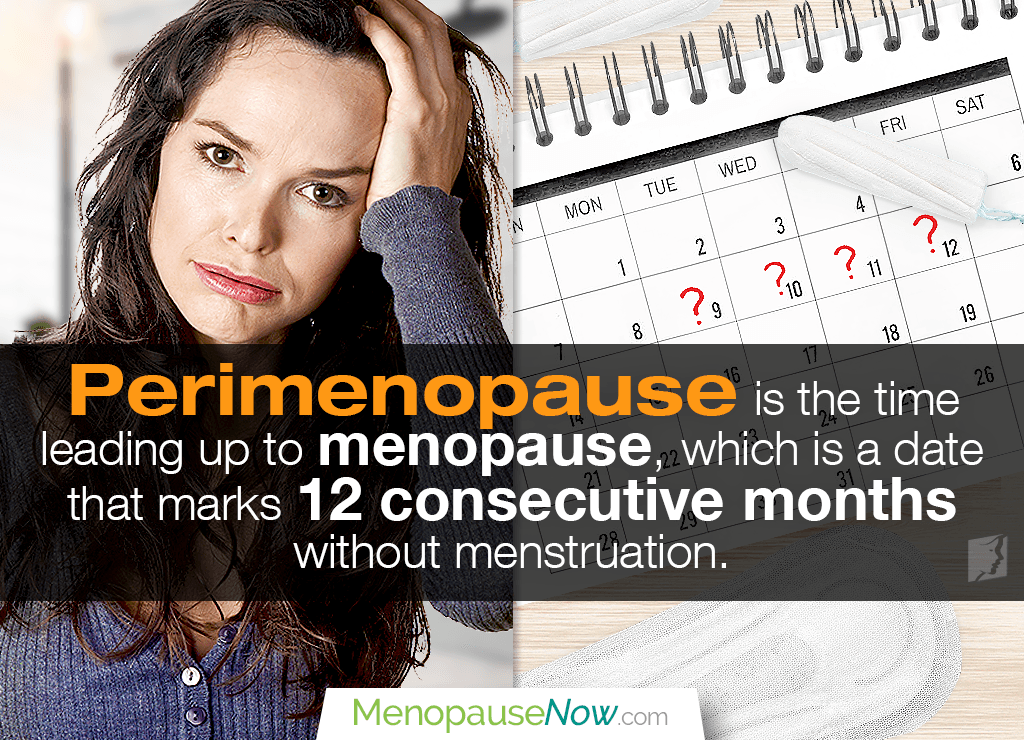If I have had no period for 6 months, am I in menopause? When does menopause actually start? Without a doubt, entering the menopause transition can be a difficult time for women as it can be accompanied by many questions and misconceptions. Fortunately, there's a wealth of information available to help explain the transition and its effects.
Read on to learn more about menopause and no periods for 6 months, including how to tell if you're in menopause, what is causing irregular periods, and more.
Am I In Menopause?
What most women refer to as being “in menopause” is actually the transition known as perimenopause. Perimenopause is the time leading up to menopause, which is a date that marks 12 consecutive months without menstruation.
The age at which women enter perimenopause varies, although for most, it will begin in their mid-40s with 51 being the average age women reach menopause.1
Accordingly, if women are still having menstrual cycles, they are most likely in perimenopause. During this transitional period, rapid hormonal shifts can result in infrequent and irregular periods, which are often one of the first menopause symptoms a woman notices. It is not uncommon for women to have no period for 6 months or longer.
Nevertheless, if women would like to confirm that they have indeed entered the last years of fertility, they may undergo diagnostic tests for menopause with their doctors.
What Causes Irregular Periods When Approaching Menopause?
As menopause approaches, periods can become lighter, heavier, and more sporadic in timing due to drastic fluctuations of key reproductive hormones, specifically estrogen and progesterone.
Throughout women's reproductive lives, estrogen and progesterone drive the regularity of the menstrual cycle. As such, when their production wanes as the hormones' main producer - the ovarian follicles - begin to run out, irregular periods ensue.
Moreover, there are other contributing factors that can cause missed periods. Stress, sleeping disorders, fatigue, diet, excessive or insufficient weight, and other environmental elements can influence menstrual cycles. It's important to remember that the mind and the body are intertwined and can affect one another.
Can I Treat Irregular Periods?
For beginners, women should strive to start making lifestyle changes to promote optimal endocrine system health. An optimized diet and exercise along with wholesome habits can help women improve their overall health and cope with the changes they are experiencing. There are also alternative medicines available that can further boost the body's efforts.
Click on the link to learn more about these natural and effective irregular period treatments, many of which can also be used to alleviate other bothersome menopause symptoms for optimal health far into one's twilight years.
Sources
- The American College of Obstetricians and Gynecologists. (2018). Perimenopausal Bleeding and Bleeding After Menopause. Retrieved September 11, 2019, from https://www.acog.org/Patients/FAQs/Perimenopausal-Bleeding-and-Bleeding-After-Menopause
- Cleveland Clinic. (2019). Menopause, Perimenopause and Postmenopause. Retrieved September 11, 2019, from https://my.clevelandclinic.org/health/diseases/15224-menopause-perimenopause-and-postmenopause
- Office on Women's Health. (2019). Menopause basics. Retrieved September 11, 2019, from https://www.womenshealth.gov/menopause/menopause-basics
- Our Bodies Ourselves. (2011). What to Expect in Perimenopause. Retrieved September 11, 2019, from https://www.ourbodiesourselves.org/book-excerpts/health-article/what-to-expect-perimenopause/
Footnotes:
- The North American Menopause Society. (n.d.). Menopause 101: A primer for the perimenopausal. Retrieved October 16, 2019, from https://www.menopause.org/for-women/menopauseflashes/menopause-symptoms-and-treatments/menopause-101-a-primer-for-the-perimenopausal




